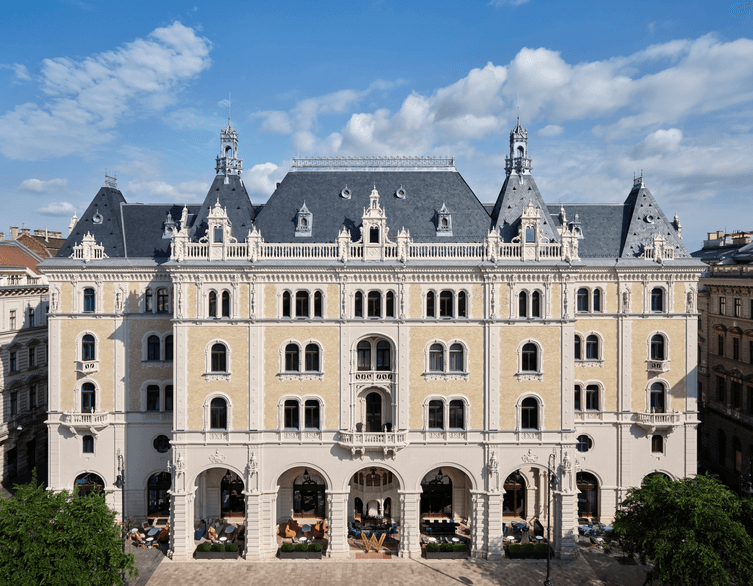Budapest’s Hotel Scene Is Booming: What This Means for Your Visit

If you’ve been considering a trip to Budapest, here’s compelling news: the Hungarian capital is experiencing an extraordinary tourism renaissance that’s transforming its hospitality landscape. Recent market analysis reveals that Budapest’s hotel sector is not just recovering from pandemic disruptions—it’s thriving beyond pre-pandemic levels, creating an increasingly diverse and sophisticated accommodation scene for international travelers.
The numbers tell an impressive story. Between January and August 2025, Budapest hotels recorded over 6.2 million guest nights, representing a 5.2% increase compared to the same period last year. By summer’s end, more than 2.6 million guests had chosen Budapest hotels, marking a 7% annual growth. Industry experts predict that by year’s end, the total guest nights will surpass the 2019 record—the last complete year before the pandemic reshaped global travel.
Understanding Budapest’s Growing Appeal
What makes these statistics particularly meaningful for travelers is what they reveal about Budapest’s position in the European tourism landscape. The city isn’t simply bouncing back; it’s evolving into a more competitive, diverse destination that appeals to an expanding range of visitors. Foreign tourists drive this growth, accounting for 86% of all guest nights—a testament to Budapest’s international magnetism.
The diversity of visitors arriving in Budapest reflects the city’s multifaceted appeal. During the first eight months of 2025, the United Kingdom led source markets with 11% of visitors, followed by the United States and Germany (each 7%), Italy (7%), Spain (5%), Israel (7%), Romania (4%), France (4%), Poland (3%), and China (4%). This geographic variety suggests that Budapest resonates across cultures, offering something valuable whether you’re seeking history, culture, thermal wellness, nightlife, or business opportunities.
Best deals of Budapest
Particularly noteworthy is the growth in Chinese tourism, with guest nights increasing 17.4% year-over-year. This surge reflects not just leisure travel but strengthening business connections between Hungary and China. Similarly, Israeli tourist numbers have rebounded dramatically—up 58% compared to 2024—signaling renewed confidence in the city as tensions that previously affected travel patterns have eased.
The Changing Accommodation Landscape
Budapest’s hospitality sector is experiencing a fascinating transformation that directly affects how you might experience the city. While traditional hotels remain the preferred choice for 55% of visitors, alternative accommodations—including private rentals and platforms like Airbnb—have seen remarkable growth. Guest numbers at these alternative properties increased nearly 24% compared to the previous year, versus 7% growth for traditional hotels.
This divergence reveals shifting travel preferences. Alternative accommodations particularly appeal to leisure travelers, especially during summer months when such properties recorded 11.5% growth compared to 2% for traditional hotels. Meanwhile, classic hotels maintain their strength during spring and autumn, when business travel peaks. Understanding these patterns can help you choose accommodation that aligns with your travel style and budget.
Currently, Budapest operates 234 hotels offering more than 23,000 rooms. Six new properties opened in 2025, adding 465 rooms—a 2% supply increase. The average size of these new hotels is 77 rooms, indicating a trend toward boutique-style developments rather than massive complexes. This shift suggests a more personalized, distinctive lodging experience is becoming available across the city.
International Brands Strengthen Their Presence
The expansion of international hotel chains in Budapest signals growing confidence in the city’s long-term tourism prospects. Among 2025’s openings, three properties belong to major international brands: the 71-room Radisson Collection Basilica, the Tribe Hotel Budapest Airport, and Jo&Joe—an innovative hybrid hotel-hostel concept, both from the Accor group.
Looking ahead, the development pipeline is substantial. Over the next three years, approximately 20 new hotels and 2,800 rooms are expected to open, representing nearly 3% annual supply growth. An additional 1,800 rooms are in various development stages. Scheduled for 2026 are the 102-room St. Regis Hotel—occupying the former Buddha Bar location—and the reopening of the former Sofitel as SO/, an Accor brand, with 348 rooms.
This expansion brings both opportunities and considerations for travelers. More hotel rooms mean greater choice, potentially more competitive pricing, and increasingly specialized properties catering to specific preferences. Whether you’re seeking luxury, budget-friendly options, design-forward spaces, or family-oriented facilities, Budapest’s evolving hotel landscape increasingly accommodates diverse needs.
Pricing Trends and Value Considerations
Understanding pricing patterns can help you optimize your Budapest visit. During summer 2025, average room rates showed moderate correction, declining 3.4% to 127 euros compared to the previous year. This decrease primarily reflected lower June and July rates, partially offset by a 12.2% August increase. The 2024 summer season had seen inflated prices due to major concerts—including Coldplay, Ed Sheeran, and Lenny Kravitz—creating exceptional demand.
Between January and August 2025, average rates increased just 0.8% to 119 euros, while occupancy rates climbed significantly—up 4.7 percentage points to 70.5%. Summer occupancy remained stable around 77%, reaching 82.1% in August. These figures suggest Budapest offers strong value compared to other European capitals while maintaining healthy demand that ensures vibrant atmosphere and well-maintained properties.
What This Growth Means for Your Experience
Budapest’s hotel market expansion reflects broader developments that enhance the visitor experience. As Balázs Csörget, leading hotel advisor at CBRE Hungary, notes, numerous factors must align for Budapest to reach the next level alongside cities like Prague and Vienna. Currently, limited intercontinental and premium airline connections, plus relatively few luxury shopping opportunities, constrain demand for ultra-luxury accommodations. However, business travel is strengthening—particularly due to significant Chinese investments—gradually positioning Budapest as a more comprehensive business and leisure destination.
The hotel development boom itself demonstrates substantial investor confidence in Budapest’s future. As properties complete construction and developers eventually exit projects, this activity will invigorate the investment market. Multiple major international and emerging hotel chains are planning further expansion, introducing new brands to Budapest and strengthening the sector’s appeal.
For travelers, this evolution translates into an increasingly sophisticated destination offering greater accommodation diversity, improved service standards, and competitive pricing. Whether you’re planning your first Budapest visit or returning to see how the city has changed, the current hospitality landscape positions Budapest as an exceptional value proposition within European tourism—combining rich cultural heritage, distinctive experiences, and modern comforts at prices that remain accessible compared to Western European alternatives.
Related news













